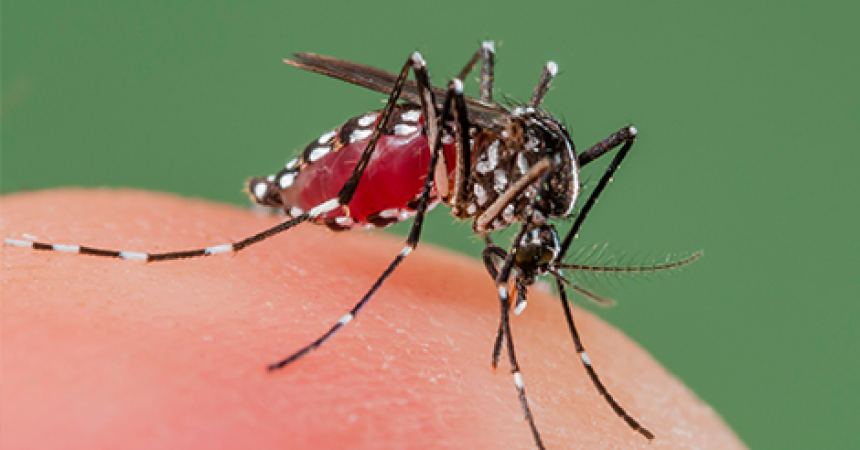
FSU scientist starts research for early detection of zika
By Ashia Glover
Outlook Writer
[dropcaps]A[/dropcaps] Florida State science professor could become the first person to find a way to detect Zika at an early stage.
Dr. David Meckes, assistant professor in FSU’s Department of Biomedical Science, said a grant of almost $200,000 could go a long way in determining success of an on-going study that he’s undertaken.
Meckes has already launched fact-finding with other scientists in Puerto Rico. More than 30,000 people were affected by the disease when it first broke out more than a year ago.
A team of 10 scientists, including current FSU students, research technicians and post-doctorial grads are involved in the research, Meckes said. The primary goal is to spot the early stages of Zika, using exosomes, a cell that shows telltale signs if there is a virus like Zika in a person.
Through the examination of exosomes scientists can gather information to closely examine cells that might contain the Zika virus. The research project is one of three Zika-related science projects going on at FSU.
Meckes said he is undertaking the research because there has been little investigation into the early detection of Zika and whether it will affect a fetus.
“In the case of disease, you can have disease markers in these exosomes; the reason this is important, is because you can find these exosomes in lots of different fluids (such as) blood, urine and saliva.
“We want to be able to know whether the baby has been infected with the Zika virus and possibly whether it will develop microcephaly or some of the other problems.”
A fetus that has developed microcephaly could have a head that is significantly smaller than expected because of abnormal brain development, which is a known affect of Zika.
Thus, the addition of scientists from Puerto Rico, where the Zika virus has reportedly affected a large number of pregnant women – some giving birth to babies with abnormalities caused by the Zika virus.
Through the collaboration with Puerto Rico, the FSU scientists will get samples from doctors on the island. Those doctors will gather blood samples of pregnant patients who either show potential of being infected or non- infected with the Zika virus.
Meckes is optimistic about the project because some early research has found that during pregnancy, the developing fetus creates a lot of exosomes that may be for communication with the mother cells. Scientists have estimated up to 60 percent of all the exosomes in a pregnant woman’s blood are from the fetus.
Sara York, one of the grad students working on the research, said the project is important because of the urgency that early detection requires.
Especially for anyone who might be exposed to areas where mosquitoes that carry the virus might hibernate.
“It is important that people take caution when going outside,” she said. “We may not see many cases here, but wearing the right clothing and bug spray is important. The purpose of this experiment is to try and detect an early case of the virus; being aware of the mosquitoes around you and lessening any chance of pregnant women transferring the virus to her unborn child is very important.”








